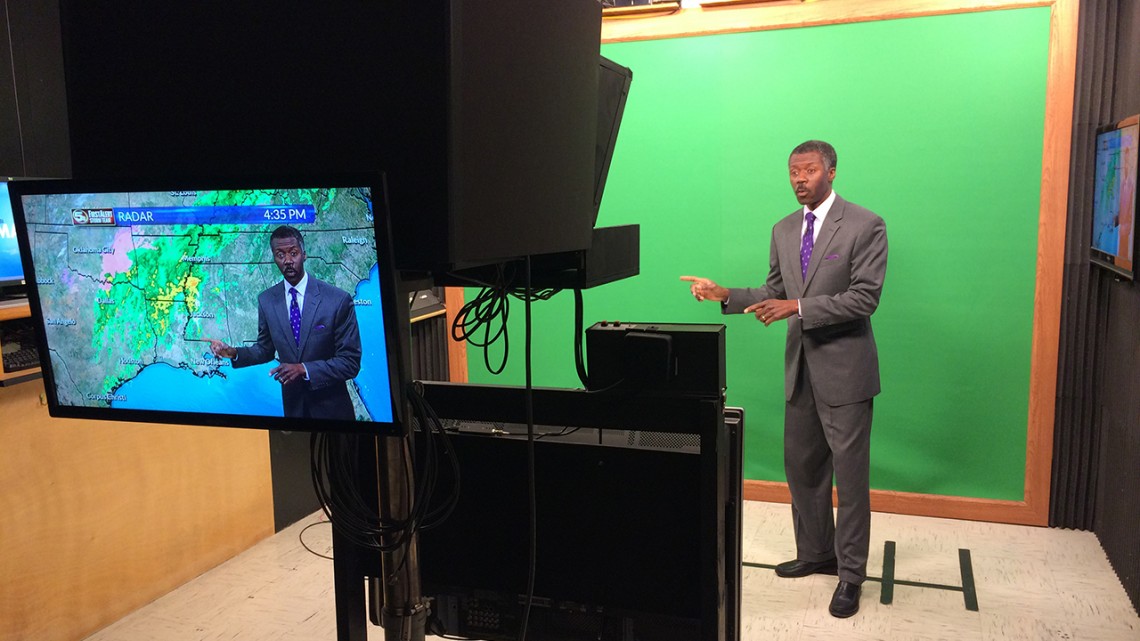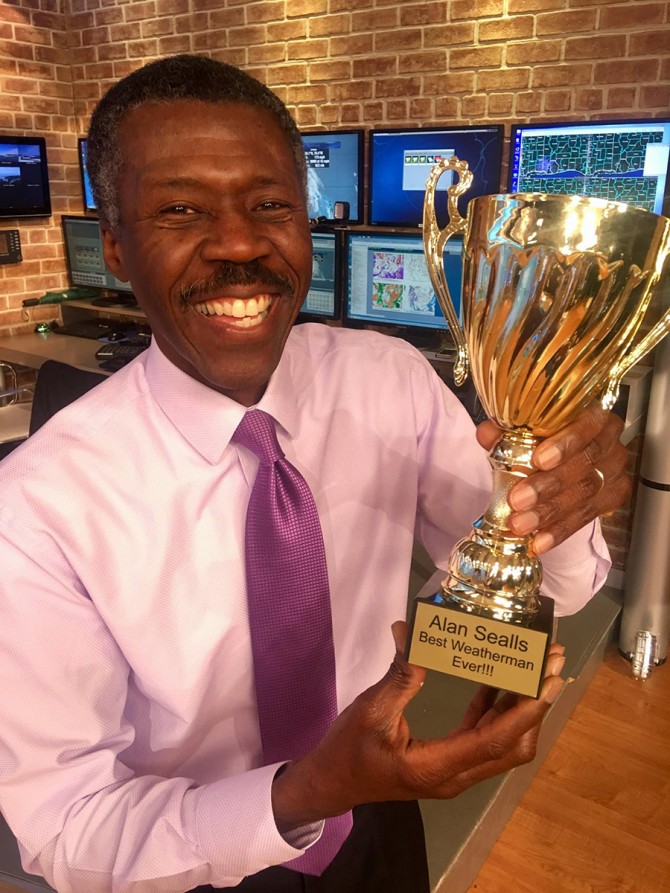
Alan Sealls ‘85 on set during a broadcast for the CBS-affiliate WKRG in Mobile, Alabama.
Alum Alan Sealls crowned ‘Best Weatherman Ever’ online
By Krisy Gashler
It was early September 2017, and Hurricanes Irma, Jose and Katia were all barreling toward the Gulf of Mexico, near where meteorologist Alan Sealls ’85 explains the weather each day for viewers of WKRG, the CBS affiliate in Mobile, Alabama.
Sealls presented the grim forecast in the characteristically calm and informative way he has honed for more than 30 years since he left Ithaca with a degree in atmospheric sciences. Between his on-air forecasts, Sealls also posted a weather segment on YouTube.
When Sealls went to bed that night, his video had 60,000 views. When he woke the next morning, he read a surprising email from a colleague: “People on Reddit are going crazy; you’re going viral!”
A Reddit user had posted Sealls’ weather report on the social news aggregation website and declared him “Best Weatherman Ever.” The post became the top trending item on the site, and by the end of the day, his YouTube clip had 4 million views.
Commenters praised Sealls’ calm, educational presentation, in contrast to the sometimes-dramatic weather reports on other programs.
“I wish I was as good at anything as he is [at] this,” one commenter posted on YouTube.
“I wanted to be a meteorologist when I was young. This guy just reignited those feelings,” posted another.
Sealls has taken the moment very much in stride. “It was amazing that something that I’ve always done, the exact same way, suddenly went viral. It was a positive thing, because most things that start trending on the internet are, in my opinion, either goofy or silly or somehow embarrassing – things that don’t necessarily have value in the long run. But this is one where people got excited about science, they got excited about learning, so to me, that was a really wonderful thing.”
Sealls has received numerous awards for his work, including 10 regional Emmys, and a national award for a series he produced on climate change. He is a fellow of the American Meteorological Society and is president of the National Weather Association.
Forecasting in the Gulf Coast region requires experience with some of the world’s most devastating weather threats. Sealls said his most memorable work was the continuous coverage he did during Hurricane Ivan in 2004 and Hurricane Katrina in 2005, both of which directly hit Mobile. For Ivan, his news station was broadcasting live for six days; for Katrina, they were on for 10 days.
“We did take commercial breaks, but it was basically a week straight of doing these extended weather segments, teaching people how the wind will come from a certain way, how they need to board up a certain side of their house,” Sealls said. “I got to use everything I’ve ever learned as a meteorologist, and my work had a real, positive impact on people. I’m really proud of what I do.”
Krisy Gashler is a freelance writer for the College of Agriculture and Life Sciences.
Media Contact
Get Cornell news delivered right to your inbox.
Subscribe

